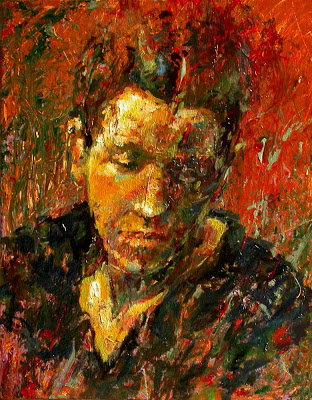 Part of the evolution of a writer, I feel, is to be able to critique yourself in an honest and real way. This doesn’t happen over night. It takes a lot of writing along with a lot of editors and publishing people commenting/reviewing/criticizing that writing. It takes a lot of reviews by critics and bloggers and readers. It takes failed attempts and rewrites and more rewrites. It takes a lot of time, a lot of honest self-evaluation, and a lot of work.
Part of the evolution of a writer, I feel, is to be able to critique yourself in an honest and real way. This doesn’t happen over night. It takes a lot of writing along with a lot of editors and publishing people commenting/reviewing/criticizing that writing. It takes a lot of reviews by critics and bloggers and readers. It takes failed attempts and rewrites and more rewrites. It takes a lot of time, a lot of honest self-evaluation, and a lot of work.
I figured this out recently. It goes back to why I started writing in the first place.
When I was growing up, moving every year or two, changing schools and friends and identities, the one place I could go to find solace would be the blank page. I wrote lots of songs & poems (they weren’t really either but rather just lamentations on being an insecure teen). These were my poorly-written Psalms of love and pain. Mostly just pain. Lots of pain from guy-girl relationships. But the core revealed a guy trying to exorcise his confusion about all this awful change. I’d write because I was afraid. Or lonely. Or confused. Or frustrated. Or just plain bored.
Then again, that’s the reason any teen might write.
I wrote so much and so often, this melancholy backbone became an inherent part of my writing. Yes, at the core, that is me. But I’m not always as gloomy as a Cure song. There’s a lot more to me. It’s just—that’s the habit that formed at an early age.
I feel that 40 is an end to one phase of my writing. Maybe I’ll share more about that down the road if it’s truly the case. But what I do know is that the more personal a story or a character is to me, the more the melancholy will slip in. No, that doesn’t mean from here on out I’ll be writing about female missionaries. I’ll always put myself in the stories, for better or worse. But I can see the potential pitfalls that some stories and characters might have.
The challenge for me is to weave the melancholy in with that humor. To not completely neglect the sadness but rather inject it with brightness and hope. To try and be real about all of these emotions, not going overboard with either side.
Maybe one day I’ll write a full-on comedy. Maybe. That would be quite an accomplishment. But I’ll take it slow. Maybe by figuring out how to make a character truly hilarious. Or by weaving a comical sub-plot into a story in a natural way.
Like I said, change doesn’t happen overnight. At least I’m getting to a point of figuring out the Why. Hopefully the How will come eventually.
I don't know, Travis. If I were a female missionary, I'd be pretty angsty. 🙂
Haha! Good one.
Travis—you’ve really hit on something about your writing here. The melancholy rather than mirth. Plenty of introspection and deep thoughts presented in an intriguing fashion.
I am wondering, like your Writer’s Tip #4, if you had a No Country For Old Men third person objective style like Cormac, it’d force the inner thoughts to be externalized for the characters. There are no italicized thoughts (Cormac did it only at each chapter opening, Sheriff Bell thinking about being a sheriff as the drug smugglers take over his town), only actions. Like The Road, also, same thing.
You might be onto something there.